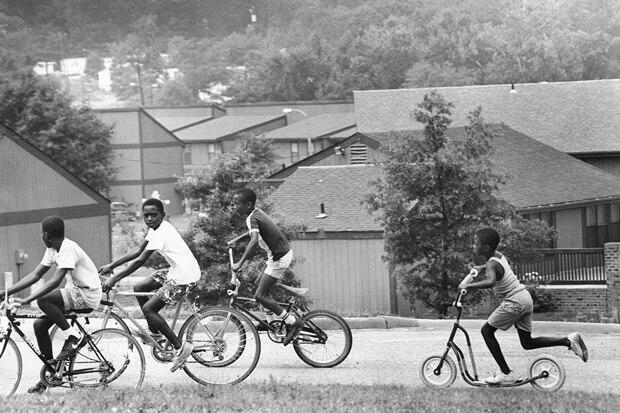
April 27, 2015
Via online oral history project, residents of demolished African-American neighborhood share their stories
VCU Libraries has posted streaming audio, transcripts of an oral history project featuring former residents of Richmond's Historic Fulton community.
Share this story
Every so often, Richmond resident Linda Sutton visits the site where her family's home at 208 Orleans St. once stood. She likes to remember the good times she had growing up in the house, which was demolished along with much of the rest of the Historic Fulton neighborhood in the 1970s as part of the city's urban renewal plan.
"I recently sat there on Orleans Street, and closed my eyes and just remembered so much of all the fun I had," Sutton said. "It makes me sad that I'll never be able to go back home and that my grandchildren will never get the opportunity to know how their Me-Mom grew up. I can never show them my big old house with a big yard and the rose bushes. It's all gone."
Sutton, along with 31 other former residents of the predominantly African-American Fulton community, shared her story with the Historic Fulton Oral History Project, conducted in 2011 and 2012 to educate, raise awareness and gain an understanding of life in Historic Fulton, a tight-knit neighborhood that was located in the East End of Richmond.
[Listen to streaming audio of Linda Sutton's oral history or read the transcript
here: https://digital.library.vcu.edu/islandora/object/vcu%3A37814]
The oral history project features interviews with teachers, activists, clergy and community leaders who tell their stories of growing up and living in the Historic Fulton community, and also provide firsthand accounts of what it was like to be affected by Richmond's urban renewal plan that razed some 800 homes and businesses.
For the past several years, physical copies of the oral history recordings and transcripts were available at 10 institutions, libraries and churches in the Richmond area. Now, VCU Libraries has posted streaming audio and searchable transcripts online, making the project available around the world.
"The Fulton community wanted to make sure that this was something that people anywhere would be able to access," said Lauren Work, digital collections librarian with VCU Libraries. "They wanted to make sure that the voices of people who had lived in Fulton were available to be heard by a broad audience."
The project was organized by the Virginia Local Initiatives Support Corp.,The Valentine, the Neighborhood Resource Center of Greater Fulton and the Greater Fulton’s Future Legacy Work Team.
The Valentine retains the project's original oral history project materials and administrative files, and holds the copyright for the materials in this collection. The Valentine asked VCU Libraries to post the project online in order to expand access.
"Now that the project can be accessed 24-7 and internationally, it will be widely available to researchers, students and the broader public. You can learn about this part of Richmond’s East End that I think a lot of people don't really know much about," said Meg Hughes, curator of archives for The Valentine. "It's important for [the Fulton residents] to have this opportunity to have their stories heard and to be able to share their memories about what it was like to grow up in Historic Fulton."
Hughes praised the cooperation between VCU Libraries and The Valentine to bring the oral histories to a wider audience.
"It was great working with VCU Libraries," she said. "It was a wonderful partnership. We were able to share the content and VCU Libraries was able to share the technical expertise. It's for the greater good to make this project more accessible."
Virginia Commonwealth University and VCU Libraries have long fostered these sorts of partnerships in community and neighborhood documentation, said University Librarian John E. Ulmschneider.
"VCU Libraries is proud to present and preserve this digital collection alongside its previous online efforts, such as Carver Community Oral Histories, Farmville Civil Rights Photographs, Voices of Freedom Oral Histories and Jackson Ward Architectural History," he said.
The Historic Fulton Oral History Project may be of particular interest to Richmond residents and others who want to know more about the history of the city.
"Historic Fulton is the birthplace of Richmond," Sutton said. "Why wouldn't you want to know about the birthplace of Richmond? We are the front door. That's the only why I can sum that up."
The Fulton area has been in the news recently because it will serve as the future site of Stone Brewing Co.'s eastern U.S. brewery and restaurant.
"Like all parts of Richmond, [Fulton] has had many different lives over the years," Hughes said. "This project lets people find out a bit more about this community's history. It would be of interest to people who are moving into that part of the city, or who have heard about Stone Brewery coming."
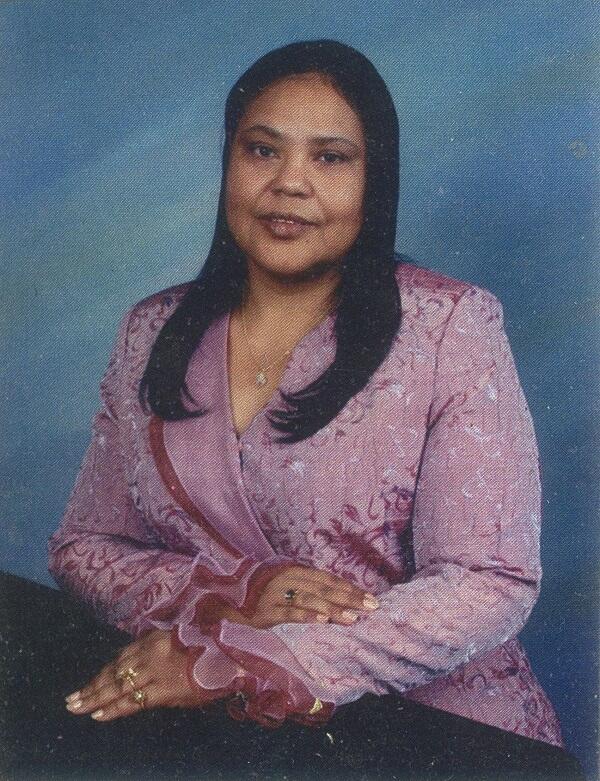
Rev. Mary Perez, associate minister of Great Hope Baptist Church in Church Hill, who was born in the Rockett's section of Historic Fulton, was one of the oral history project's interviewees. The project, she said, gave Historic Fulton residents the chance to tell the true story of the community.
"Fulton had very close-knit families down there," she said. "And when [the urban renewal plan] happened, families were scattered. Promises were made that we could come back together but those promises never came to fruition."
[Listen to streaming audio of Rev. Mary Perez's oral history or read the transcript here: https://digital.library.vcu.edu/islandora/object/vcu%3A37846]
At the time of the urban renewal plan, much of the media coverage of the urban renewal plan cast Historic Fulton in a negative light. Perez said that portrayal was unfair, and that the community had a school, a movie theater, doctors who made house calls, and nearly every family knew all their neighbors.
"You know the saying, ‘It takes a village to raise a child’? Well, Historic Fulton was a village. But when this happened 45 years ago, it was destroyed," she said. "Now, when they do revitalization, they tear down bits and pieces and they rebuild. That didn't happen with Fulton. They just wiped it out completely."
Perez said she is grateful for the opportunity provided by The Valentine to share their oral histories, and grateful that VCU has taken a step further to share those stories with the world.
"Now we get a chance to tell our story and we get a chance to tell it the way it really happened," she said.
Excerpts from the Historic Fulton Oral History Project
The following are excerpts from several of the oral histories included in the Historic Fulton Oral History Project. Caroline Morris, then a College of William & Mary history doctoral student, conducted the interviews in 2011 and 2012.
Linda Sutton
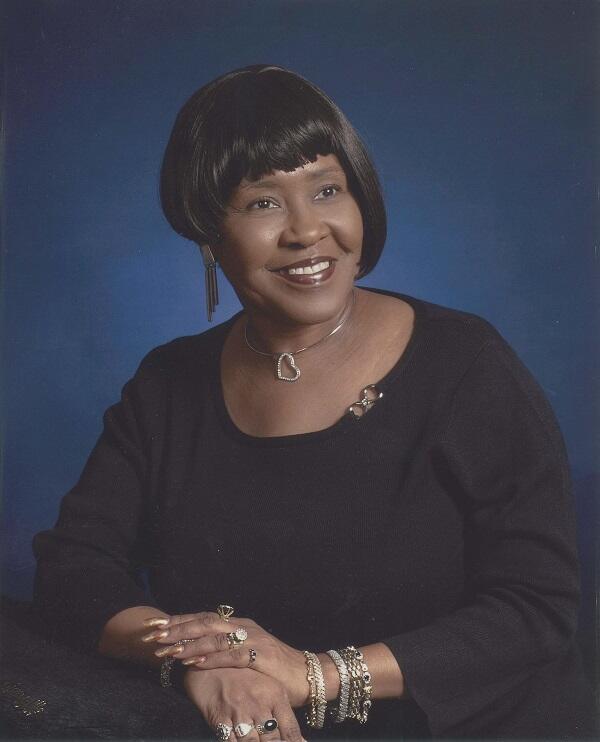
LS: … As time start moving on we start hearing in the news and in the paper that Richmond Redevelopment was getting ready to come through Fulton and start tearing it down. They had started talking to different families about selling their homes, buying their land, and helping them move elsewhere. The only thing about that is — all of us at my time were young, we didn’t really understand what was going on. If we did understand what was going on, I think we woulda did a bigger fight and then what really happened — because — I can remember when they came to talk, well my grandmother had died by then, so it was my granddaddy and I was still living with him and my son, and when Richmond Redevelopment came and they talked to him and was telling him they was gonna give him a good price for his house and he was asking, 'What are you gonna do with Fulton? Why are you moving us up out?' They were saying that, it was like we had so much problem with flooding and the tanks and they wanted to give it a uplift and they wanted to rebuild. And so, he did ask, 'Well, what if I don’t move, what would happen?' And he said, 'Well, we are coming through. We are knocking down the houses to rebuild.' That was the first lie.
CM: The first lie?
LS: The first lie that we got. 'We’re gonna come through and rebuild.' The 'rebuild' part was the lie.
---
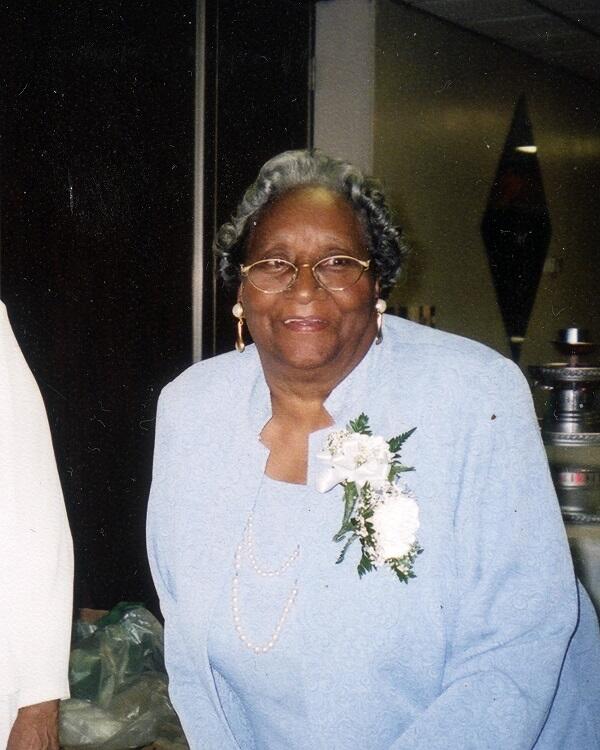
Estelle Braxton-Davis
[In Fulton] neighbors were neighbors. We were really one family in the area. All of us had homes, we had parents in our homes — most of us came up in two parent homes unless a parent passed away. And we were able to go from place to place not being concerned about what happened to us. And we didn’t know that people in the other areas thought of us as being a poor community because we had houses, we had homes, we had clothing, and we all went to school together and we did many things together as children. And everybody in the community looked out — every adult in the community looked out for everybody else’s children in the community.
---
Forrest Dowden
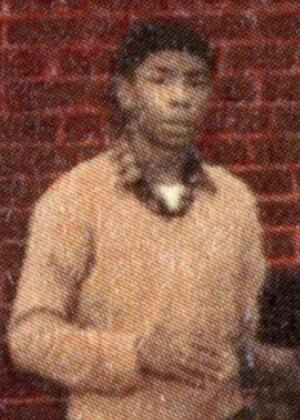
FD: They tore it all down. All down. You had many houses in Fulton that was, I would say above standard. You know. It was ridiculous. You know in your head, a Mr. Baker … I just can’t name them all. The Roanes, the Whites. All these people kept they property up. Miss Bernice White, she owned some real estate and she kept every bit of hers up.
CM: But it didn’t matter?
FD: No it didn’t matter.
CM: To the planners.
FD: They just had in they mind set out to tear it down, and that’s what they did.
CM: So how did you feel about it?
FD: I felt terrible, really. Because I loved where I lived at.
CM: Where did people go?
FD: Some went everywhere ... They scattered out. Few came up here on this hill. But I mean they went Gilpin Court, Southside, the Projects over Church Hill, anywhere they could get to go. They didn't, they scattered everybody. I mean just, just, Fulton was one large family and they just destroyed all the harmony. Even the churches. Churches everywhere now. We had all close-knit community with churches everywhere. And I think we got, what, we got one church down in Fulton now? And that’s the only one! All the rest of them is here, there and everywhere.
Subscribe for free to the weekly VCU News email newsletter at http://newsletter.news.vcu.
Subscribe to VCU News
Subscribe to VCU News at newsletter.vcu.edu and receive a selection of stories, videos, photos, news clips and event listings in your inbox.













